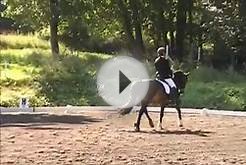A wide range of institutions in Ireland provide third-level education. The university sector, the technological sector and the colleges of education are substantially funded by the State. In addition, there are a number of independent private colleges.
The Higher Education Authority is the statutory agency responsible for the funding of universities, institutes of technology and certain other higher education institutions. It has an advisory role in relation to the whole sector of third-level education.
University sector
Universities in Ireland are State-funded, but they are generally autonomous. There are 7 universities in Ireland. These include:
Technological sector
The technological sector includes institutes of technology which provide programmes of education and training in areas such as business, science, engineering, linguistics and music to certificate, diploma and degree levels. There are 14 institutes of technology located around the country. In the Dublin area they are Dublin, Tallaght, Blanchardstown and Dun Laoghaire. Outside Dublin they are Cork, Waterford, Tralee, Dundalk, Athlone, Galway and Mayo, Sligo, Letterkenny, Limerick, and Carlow.
Colleges of education
Several colleges of education in Ireland provide specialised training for primary school teachers. They offer a 3-year Bachelor of Education degree and an 18-month postgraduate diploma. Post-primary teachers generally do a primary degree, followed by a postgraduate diploma. You can find more information in our document on teacher qualifications.
Other colleges
In addition to State-funded colleges, a number of fee-paying third-level educational institutions offer courses, mainly in professional vocational training and business. Some of these colleges are linked to universities or professional associations and their qualifications may be accredited accordingly – see below.
Third-level qualifications
The National Framework of Qualifications (NFQ) is a system of 10 levels which allows the different standards and levels qualifications to be compared. A diagram of the NFQ is on the website of the Quality and Qualifications Ireland (QQI). Third-level qualifications are Levels 6-10 in the Framework.
Award of qualifications
In the university sector the 4 awarding bodies are the National University of Ireland (UCD, UCC, UCG and Maynooth), Dublin University, Dublin City University and the University of Limerick. Quality and Qualifications Ireland is the awarding body for third-level educational institutions outside the university sector. QQI is also the awarding body for further education and training. It also awards Higher Certificates (NFQ Level 6). More detailed information is in our document on further and higher education qualifications.
Universities: The State-supported universities all award their own degrees and other awards. University students qualify with Ordinary Bachelors degrees (NFQ Level 7) or Honours Bachelors degrees (NFQ Level 8). Universities also offer Masters (NFQ Level 9) and Doctoral (NFQ Level 10) postgraduate degrees.
Institutes of technology (ITs): The Dublin Institute of Technology (DIT) makes its own awards. The other institutes of technology grant degrees, diplomas and certificates, which are validated by QQI. Students generally qualify with Higher Certificates (NFQ Level 6) or Ordinary Bachelors degrees (NFQ Level 7). Honours Bachelors degrees (NFQ Level 8), Postgraduate Diplomas (NFQ Level 9) and Higher Doctorate (NFQ Level 10) are also available.
Other colleges: The other State-supported colleges generally grant awards that are validated by QQI. The private colleges make awards, some of which are validated by foreign universities and some of which are validated by QQI. Some of their awards are not validated by any outside body.
Progression is a feature of the National Framework of Qualifications. Often a Level 6 certificate awarded by QQI can offer the opportunity to continue on to a NFQ Level 7 or Level 8 degree. The Higher Education Links Scheme allows those with a QQI Level 5 and Level 6 (NFQ) qualification to progress to higher education. You can get a leaflet about progression (pdf).
Postgraduate study
You need to consider what kind of postgraduate study you wish to do, what are the most suitable courses for you and your career and what costs are involved. Postgraduate study can either be a taught course or research and generally falls into one of the following categories:
- Postgraduate diploma: Often this is a vocational course, linked to professions such as teaching or librarianship. The subject may be different from the primary degree. In some cases it is possible to ‘convert’ a diploma to a masters.
- Masters degree: This can be either a taught course or based on research. It lasts 1-2 years and usually involves course work and a thesis. Sometimes it is possible to convert a masters to a PhD.
- PhD: This is a doctorate awarded for a thesis based on research. It takes at least 3 years' study and it must be an original contribution to knowledge.
Funding postgraduate study
In general, you will have to pay fees for postgraduate courses. You may be able to get tax relief on the fees. If you got a third-level grant for your undergraduate course, you may qualify for a grant for postgraduate study in Ireland, including Northern Ireland.
There are different sources of funding for postgraduate students. Sometimes financial support is available from the university that is running the postgraduate course; sometimes you need to apply to an external body. A number of research bodies provide funding for postgraduate research in Ireland, including the Irish Research Council and Science Foundation Ireland.
A number of scholarships and fellowships for study abroad are awarded annually by foreign governments to Irish students who are engaged in, or have completed, a course of third-level education. You can find information about opportunities for postgraduate study abroad on the website of the Department of Education and Skills. If you wish to study in the UK there is a graduate website for the UK called Prospects.
Applications and further information
For postgraduate courses you generally apply directly to the university or college. You can find information about postgraduate courses and applications from the careers office in your college or university. If you are applying for postgraduate courses in the UK you can apply online to certain universities and colleges.
freckle education dell education discount secondary education meaning new oriental education cooperative education continuing education credits new jersey department of education jonathan taylor thomas education santee education complex kentucky higher education nc department of education all star driver education nurse continuing education sc education lottery winning numbers special education week teaching special education harris county department of education reef education general education courses maryland board of education uf college of education regional office of education what is rti in education education for anesthesiologist education resume examples how to make a lightsaber in minecraft education edition janet yellen education americorps education award outdoor education education in spanish remote jobs in education elon musk education background education connection song what does education mean matt lafleur education true education resume education education com worksheets education and training michigan education savings program dermalogica education finland education system schools of education bob graham education center katherine schwarzenegger education masters degree in education continuing education nursing inside higher education n. c. education lottery ohio department of education jobs kansas department of education education city va education benefits phone number public education ranking by state i am malala: how one girl stood up for education and changed the world texas hunters education nasco education netce continuing education level of education education edition minecraft marion county board of education douglas education center learning in education mlk quote about education mn department of education texas department of education montgomery county board of education








